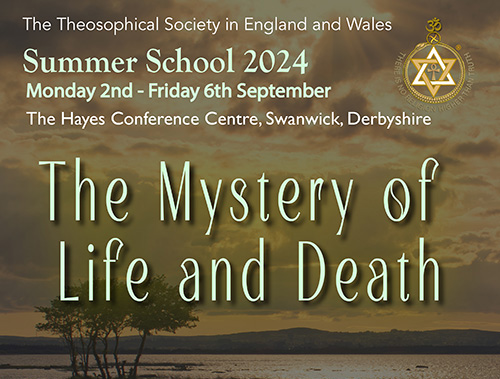Reflections on the 2024 Summer School:
A Journey of Discovery and Connection
“As the summer battled with autumn, the early September light bathed the serene grounds of The Hayes Conference Centre in Swanwick, Derbyshire, the Theosophical Society’s Summer School opened its doors to a gathering of seekers, all drawn by our timeless quest for knowledge, wisdom, and spiritual awakening. From the 2nd to the 6th of September, I had the privilege of immersing myself in a rich tapestry of talks, workshops, and contemplative practices that brought together both ancient traditions and modern insights.
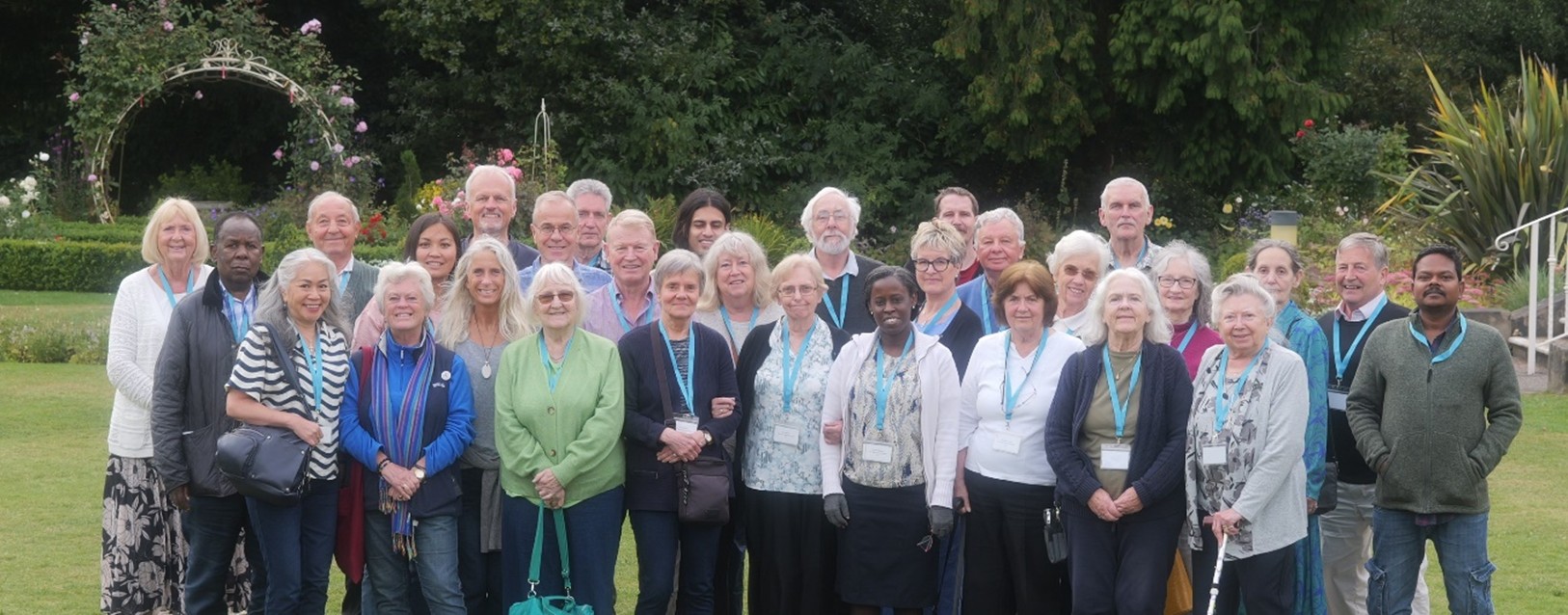
One of the most profound highlights for me was learning the ancient Chinese art of Qigong with Terri King. The graceful, flowing movements and the deep connection to energy that Qigong fosters offered me not only a new physical practice but also a spiritual awakening. It’s something I’m certain I will continue to explore in the future, as it aligns so beautifully with the Theosophical teachings of unity and balance.
Gary Kidgell’s exploration of Greek Hero Myths and the Quest for Transcendence transported us back to ancient times, yet his message felt deeply relevant for today’s seekers. Through the stories of these heroes, we are reminded of our own journey toward transcendence—a journey of struggle, courage, and ultimately, transformation. His talk was a reminder that, as Joseph Campbell said, we are all on a personal hero’s journey, seeking to rise above the mundane and connect with the divine.
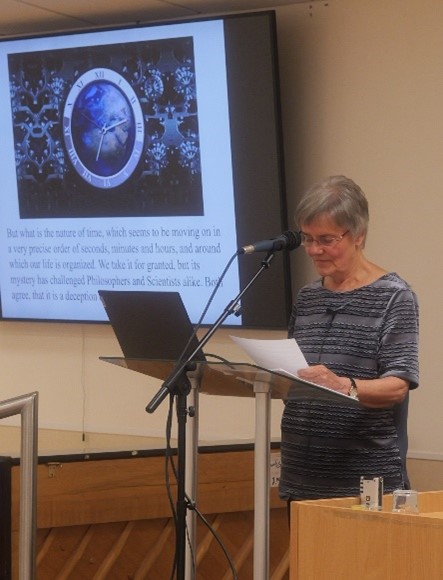 The Blavatsky Lecture, given by Petra Meyer, was a deep dive into the cyclic nature of life. Through her deeply researched words, I was reminded of the rhythms of existence, the eternal return, and how life’s greatest mysteries unfold in cycles that we can only begin to comprehend. Petra also gave the public lecture on Time, where she drew fascinating connections between science and spirituality, emphasizing that time, like all phenomena, is part of a greater cosmic dance. This lecture resonated deeply with me, reinforcing my growing belief that Quantum Physics and Theosophy are beginning to converge, offering us glimpses into a unified understanding of our world.
The Blavatsky Lecture, given by Petra Meyer, was a deep dive into the cyclic nature of life. Through her deeply researched words, I was reminded of the rhythms of existence, the eternal return, and how life’s greatest mysteries unfold in cycles that we can only begin to comprehend. Petra also gave the public lecture on Time, where she drew fascinating connections between science and spirituality, emphasizing that time, like all phenomena, is part of a greater cosmic dance. This lecture resonated deeply with me, reinforcing my growing belief that Quantum Physics and Theosophy are beginning to converge, offering us glimpses into a unified understanding of our world.
Tony McNeile spoke very personally and directly about his own life experiences and the relationship with karma, destiny, and fate. His unique blend of life experiences was woven together beautifully as he spoke.
Elizabeth Crofts opened an entirely new realm for me with her intriguing talk on Shakespeare and Theosophy. Her deep knowledge of both subjects illuminated connections that I had never considered, and I left her talk with a newfound appreciation for the esoteric wisdom embedded within Shakespeare’s works.
Neville Crofts led a thought-provoking study group on Socrates. As we explored Socrates’ acceptance of his impending self-administered execution by hemlock, I was deeply moved by the philosopher’s serene courage and his insights into the nature of existence and the soul’s immortality. It was a reminder of how Theosophy continues to echo the wisdom of these ancient philosophical traditions.
Equally stimulating was the study group on near-death experiences led by Peter Brierley and Terri King. Their discussion on the Theosophical stages of after-death brought fresh perspectives on the transition between life and death and offered comforting insights into what lies beyond.
Wayne Gatfield's heartfelt talk on awakening our true self rekindled within all of us the deep truth that we are Buddhas in our essence, constantly awakening to our divine nature.
 Our National President, Jenny Baker, brought the week to a fitting close with her excellent talk on the mysteries of existence. Her words left me reflecting on the depth of the Theosophical teachings and their relevance in navigating the complexities of life. It was a beautiful synthesis of the week’s themes, and her wisdom grounded our shared journey.
Our National President, Jenny Baker, brought the week to a fitting close with her excellent talk on the mysteries of existence. Her words left me reflecting on the depth of the Theosophical teachings and their relevance in navigating the complexities of life. It was a beautiful synthesis of the week’s themes, and her wisdom grounded our shared journey.
Beyond the rich talks and study groups, one of the most rewarding aspects of the week was meeting fellow Theosophists in person. There truly is no substitute for face-to-face connection, despite the modern convenience of our Zoom gatherings. The sense of camaraderie, shared purpose, and the deep conversations I had will stay with me long after we’ve parted ways.
 As I reflect on my time at the Summer School, I was intrigued to learn that the Theosophical Society was last at The Hayes Conference Centre in 1956.
As I reflect on my time at the Summer School, I was intrigued to learn that the Theosophical Society was last at The Hayes Conference Centre in 1956.
To return to this venue 68 years later added a sense of continuity and history to our gathering. It was as if the teachings of Theosophy, like the cycles of life we explored during the week, had come full circle.
I very much hope to return next year, wherever we meet, and continue this journey of discovery with kindred spirits. My heartfelt thanks to all who worked so hard to make this week possible and to the staff of the Hayes Centre for their warm hospitality."
Andrew Swaffield President of Worthing Lodge.
____________________
Review; Summer School England and Wales 2024
The Mystery of Life and Death
My partner and I came to England to walk in the Lake District and the Yorkshire Dales and to visit some of your beautiful gardens. It was a happy co-incidence for us that the 2024 TS Summer School for England and Wales coincided with our trip.
Vita Sackville -West who helped create the beautiful garden of Sissinghurst in Kent said:
‘One has a lot, an endless lot to learn when one sets out to be a gardener.’
As Theosophists in pursuit of truth and brotherhood I think the same sentiment applies. Summer schools offer rich opportunities to learn and to enjoy, just as a garden does.
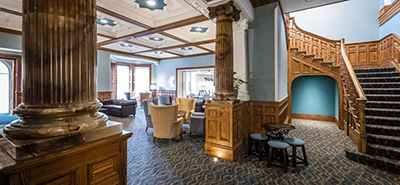 Thanks to Peter and Terri, I explored the connections between theosophical writings and the near-death experience. HPB wrote ‘every man (at death) ...sees the whole of his past life marshalled before him, in its minutest detail.’
Thanks to Peter and Terri, I explored the connections between theosophical writings and the near-death experience. HPB wrote ‘every man (at death) ...sees the whole of his past life marshalled before him, in its minutest detail.’
This concurs with modern accounts of near-death experiences; a fascinating topic, I think. Petra shared her passion for drawing out the connections between science and theosophy with much scholarly research. Then there was inspiring Pam (Evans) and her dedication to the Peace Mala project. And we learnt much more about Shakespeare and his insights into life and death from Elizabeth. So much richer than our school day experiences of the Bard!
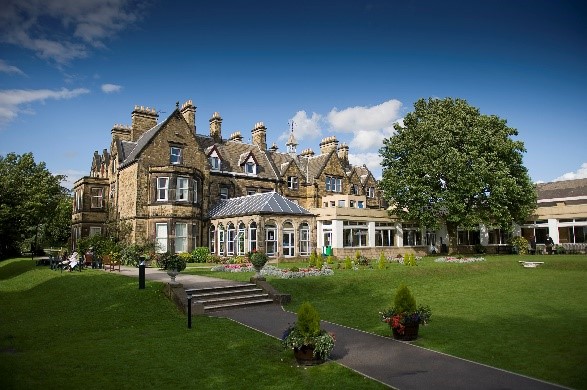 Just as flowers offer different perfumes, we were inspired by Wayne’s fragrant words in bringing before us the mystical depths that Theosophy encourages. I still recall his wonderful Zen story: ‘we come to the river with a boat (the mind and intellect), we cross the river helped by the boat, but we must discard the boat on the other side’. To quote Wayne with whom I agree: “That says it all really.” The summer school offered us new material as well as fresh perspectives on familiar topics and a few little gems to take away, like this wonderful Zen story.
Just as flowers offer different perfumes, we were inspired by Wayne’s fragrant words in bringing before us the mystical depths that Theosophy encourages. I still recall his wonderful Zen story: ‘we come to the river with a boat (the mind and intellect), we cross the river helped by the boat, but we must discard the boat on the other side’. To quote Wayne with whom I agree: “That says it all really.” The summer school offered us new material as well as fresh perspectives on familiar topics and a few little gems to take away, like this wonderful Zen story.
At the summer school there was also much to enjoy, comfortable beds, good food and pleasant company. There was also laughter provided by Neville in his hilarious musical presentation and by Damon in his quirky quiz. We visited the garden at Newstead Abbey with its excellent Japanese garden and heartfelt shrine to Boatswain, Byron’s beloved dog. The gentle greenness of late summer trees and fading flowers was a delightful source of relaxation as were the yoga nidra sessions I enjoyed with Jenny.
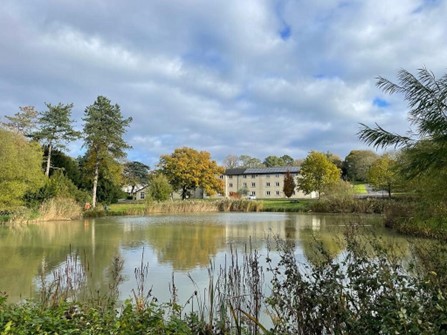 We take back to Australia many pleasant memories of our time with you and the warmth of your British welcome. A special shout out to Neville who kindly bought delicious coffees for his ‘antipodean friends’ on our Abbey visit. Such a kind gesture. Thank you all for your brotherhood and may your theosophical journeys be perennially abundant like the flowers in your beautiful gardens.
We take back to Australia many pleasant memories of our time with you and the warmth of your British welcome. A special shout out to Neville who kindly bought delicious coffees for his ‘antipodean friends’ on our Abbey visit. Such a kind gesture. Thank you all for your brotherhood and may your theosophical journeys be perennially abundant like the flowers in your beautiful gardens.
Best Wishes
Nila (co-ordinator Sydney Northern Beaches group) and Geoff Chambers
_____________________
An Interesting Historical Fact about The Hayes Conference Centre
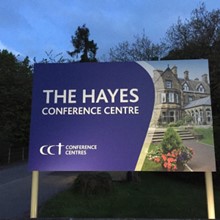 The Hayes in Swanwick, Derbyshire wasn’t always the tranquil retreat centre it is today. Eighty-four years ago, it was an important site in the Second World War. The Hayes became ‘Camp 13’, one prisoner of war camp amongst many others across the UK. Camp 13 was host to German prisoners, five of whom made a dramatic escape that would go down in history.
The Hayes in Swanwick, Derbyshire wasn’t always the tranquil retreat centre it is today. Eighty-four years ago, it was an important site in the Second World War. The Hayes became ‘Camp 13’, one prisoner of war camp amongst many others across the UK. Camp 13 was host to German prisoners, five of whom made a dramatic escape that would go down in history.
Go to The Hayes today and you’ll find a commemorative plaque covering a still-intact tunnel, that reads:
“The remains of a tunnel excavated by German prisoners in December 1940 to enable five to escape. Their exploits were recorded in the book and film “The One That Got Away”.”
These prisoners of war called themselves 'Swanwick Excavations, Inc'. With only spoons as their tools they dug out a 30m subterranean tunnel, creating a passage that reached across the perimeter fence and into the countryside. The tunnel took a month to excavate. Camp forgers set the men up with money and fake ID to help them once they got out.
Making their escape just a few days before Christmas 1940, they had the help of a PoW choir and anti-aircraft fire distracting the guards. Squeezing through the tiny passageway one by one, they made it out of Camp 13. Their freedom was brief however – unfortunately for the prisoners, all but one of them were recaptured.
The outlier was Oberleutnant Franz von Werra – ‘the one that got away’. The German lieutenant managed to get as far as the then nearby RAF base at Hucknall.
He pretended to be a Dutch pilot shot down in his plane – but he was caught and re-arrested just before he could fly away, and was taken back to Camp 13.
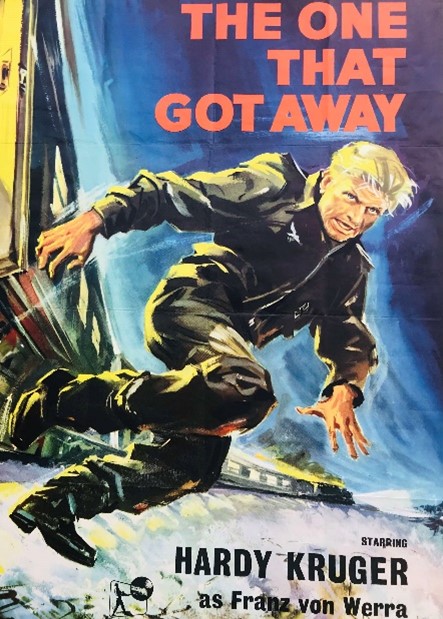
This wasn’t even his only attempt to escape captivity though. His later and final escape was from a window of a prisoner train in Canada. This time it was a success, even though he came close to death. He later died in a Bf 109F-4 fighter aircraft practice flight over the North Sea, after returning to his homeland and being redeployed to Russia in 1941. He was just 27 years old.
Von Werra’s story is an outstanding WWII adventure made into a book, first published in 1953 and filmed in 1956 entitled “The One That Got Away”, which premiered in 1957.


